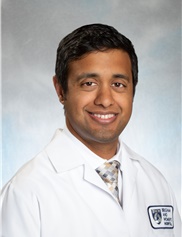Grants Funded
Grant applicants for the 2024 cycle requested a total of nearly $3 million dollars. The PSF Study Section Subcommittees of Basic & Translational Research and Clinical Research evaluated more than 100 grant applications on the following topics:

The PSF awarded research grants totaling over $650,000 dollars to support more than 20 plastic surgery research proposals.
ASPS/PSF leadership is committed to continuing to provide high levels of investigator-initiated research support to ensure that plastic surgeons have the needed research resources to be pioneers and innovators in advancing the practice of medicine.
Research Abstracts
Search The PSF database to have easy access to full-text grant abstracts from past PSF-funded research projects 2003 to present. All abstracts are the work of the Principal Investigators and were retrieved from their PSF grant applications. Several different filters may be applied to locate abstracts specific to a particular focus area or PSF funding mechanism.
Production of autologous adipose bioreactors through ex vivo gene editing
Shailesh Agarwal MD
2020
Brigham and Women's Hospital, Harvard
Pilot Research Grant
Tissue Engineering, Fat Grafting
Project Summary: Therapeutic biologic agents (TBAs), in contrast to chemical or small-molecule drugs produced through laboratory chemical synthesis, are therapeutic molecules derived from biological organisms. Classic TBAs include erythropoietin for anemia and insulin for diabetes, and include a broad range of therapeutic peptides and nucleic acids, which present enormous clinical opportunity. Although there is growing demand for TBAs, complex manufacturing and delivery processes present substantial barriers to their clinical use. In vivo living bioreactors programmed to produce a TBA of interest, offer an intriguing solution to these challenges. First, they obviate financial and resource costs associated with in vitro cell culture, purification, and formulation for delivery. Instead, the TBA is produced by the in vivo bioreactor and eluted locally or systemically. Placement of in vivo bioreactors within deep structures would facilitate sustainable, local delivery in sites not amenable to repeat direct injection (e.g. internal organs, joints, deep muscles). In this pilot study, I will develop a strategy which enables human adipose tissue to be harvested, gene-edited, and injected back in the patient to serve as an autologous in vivo bioreactor producing a desired TBA. Proof-of-concept studies will be performed to identify optimal electroporation settings for gene and protein delivery into human adipose tissue. Next I will edit the human adipose tissue to express the secreted bioluminescent protein Gaussia luciferase, a secreted bioluminescent protein, and eGFP, to enable monitoring of stable gene expression and bioreactor engraftment in SCID mice, as well secretion of bioactive peptide (Gaussia luciferase). Adipose tissue is abundant, accessible with minimal donor site morbidity, and its removal is routinely performed by plastic surgeons. Our specialty has amassed significant literature demonstrating the safety of adipose graft delivery into myriad locations within the body through minimally-invasive techniques which result in little or no scarring. Therefore, my goal is to transform the role of adipose autografts from “filler” to personalized “bioreactor”, bringing plastic surgeons to the forefront of translational synthetic biology. Impact Statement: Autologous adipose graft or “fat” grafts are an important part of the reconstructive plastic surgeon's armamentarium. I will develop a technique in which adipose tissue, removed from a patient via liposuction, can be genetically modified in the operating room to express a therapeutic biologic agent. I envision that this adipose bioreactor can then be delivered back to the patient in the same operating room visit to provide treatment for the patient's underlying medical condition. In this way, adipose tissue can serve as an agent of production and delivery of the therapeutic agent. My laboratory is intent on bringing plastic surgeons to the forefront of translational synthetic biology by using tissues which have been genetically modified ex vivo.
 Dr. Shailesh Agarwal is an Assistant Professor of Surgery at Harvard Medical School and Associate Surgeon in the Division of Plastic Surgery at the Brigham and Women's Hospital. Dr. Agarwal completed his residency in plastic surgery at the University of Michigan from 2010-2018. During that time, he also completed a 2-year post-doctoral research fellowship studying pathologic wound healing with Dr. Benjamin Levi. Dr. Agarwal completed his microsurgical fellowship at the University of Chicago where he performed microsurgical reconstruction including lymphovenous bypass and vascularized lymph node transfer for patients with secondary lymphedema. At the Brigham and Women's Hospital, Dr. Agarwal performs both microsurgical and implant-based breast reconstruction, lymphedema surgery with vascularized lymph node transfer, LYMPHA for lymphedema prevention, and gender-affirming top and bottom surgery. His laboratory is focused on studying the underlying biology of lymphedema fibroadipose tissue deposition, and in developing adipocyte-based therapies for the local release of therapeutic biologic agents including peptide and microRNA.
Dr. Shailesh Agarwal is an Assistant Professor of Surgery at Harvard Medical School and Associate Surgeon in the Division of Plastic Surgery at the Brigham and Women's Hospital. Dr. Agarwal completed his residency in plastic surgery at the University of Michigan from 2010-2018. During that time, he also completed a 2-year post-doctoral research fellowship studying pathologic wound healing with Dr. Benjamin Levi. Dr. Agarwal completed his microsurgical fellowship at the University of Chicago where he performed microsurgical reconstruction including lymphovenous bypass and vascularized lymph node transfer for patients with secondary lymphedema. At the Brigham and Women's Hospital, Dr. Agarwal performs both microsurgical and implant-based breast reconstruction, lymphedema surgery with vascularized lymph node transfer, LYMPHA for lymphedema prevention, and gender-affirming top and bottom surgery. His laboratory is focused on studying the underlying biology of lymphedema fibroadipose tissue deposition, and in developing adipocyte-based therapies for the local release of therapeutic biologic agents including peptide and microRNA.